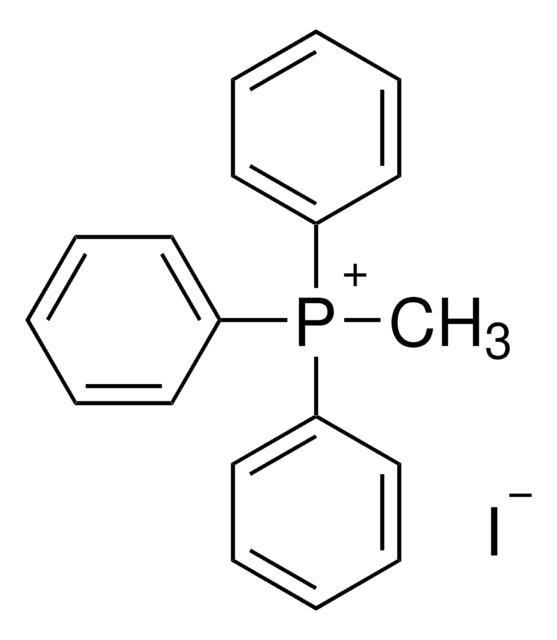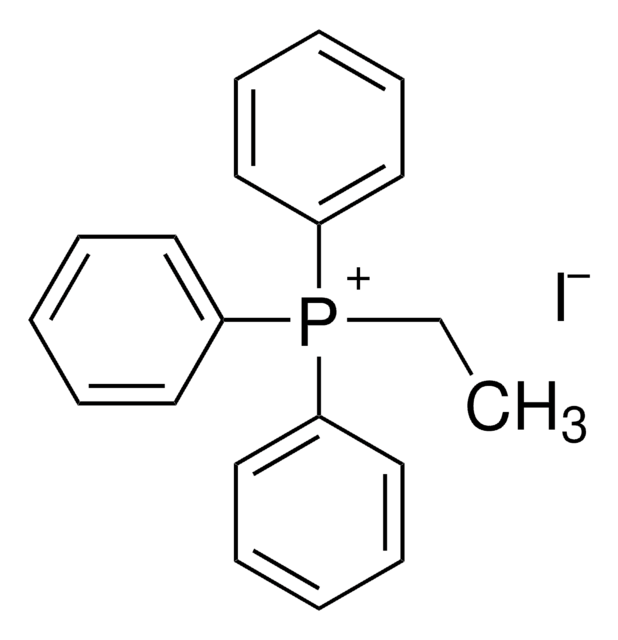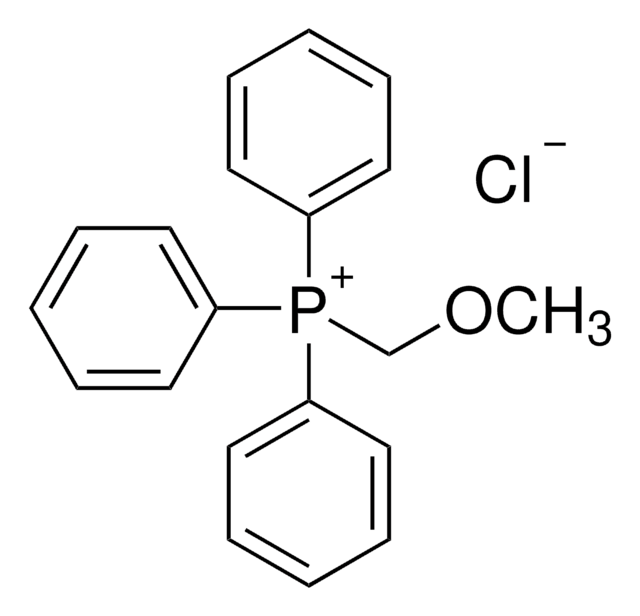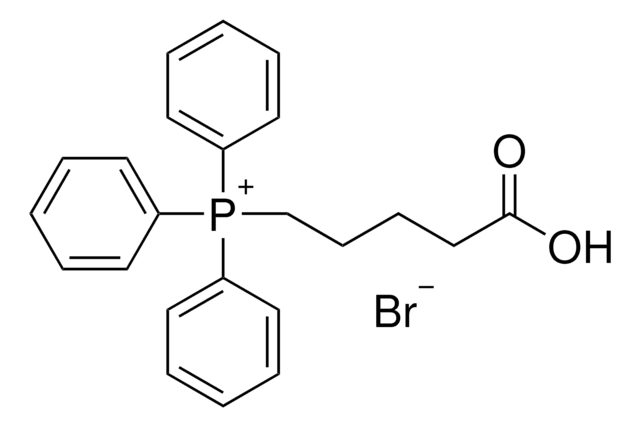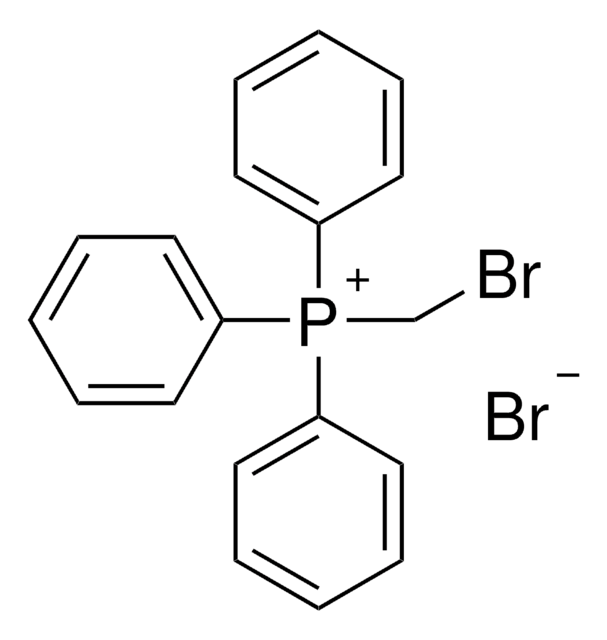E50604
Ethyltriphenylphosphonium bromide
99%
Synonym(s):
TEP
About This Item
Recommended Products
Quality Level
Assay
99%
reaction suitability
reaction type: C-C Bond Formation
mp
203-205 °C (lit.)
SMILES string
[Br-].CC[P+](c1ccccc1)(c2ccccc2)c3ccccc3
InChI
1S/C20H20P.BrH/c1-2-21(18-12-6-3-7-13-18,19-14-8-4-9-15-19)20-16-10-5-11-17-20;/h3-17H,2H2,1H3;1H/q+1;/p-1
InChI key
JHYNXXDQQHTCHJ-UHFFFAOYSA-M
Looking for similar products? Visit Product Comparison Guide
Related Categories
Application
- D-amino acids from L-cysteine-derived thiazolidines
- Leiodolide A via aldol reactions and Horner-Wadsworth-Emmons olefination
- Cycloalkanoindolines via diastereoselective intramolecular inimo-ene reactions
- WXYZA′ domain of maitotoxin using the coupling of key building blocks
Reactant for:
- Solid-state metathesis polycondensation to form alkyl-dipropenylthiophene monomers
- Mizoroki-Heck cyclization and cascading Tsuji-Trost cyclization / lactonization cyclization reactions for synthesis of an ABC ring system
Signal Word
Danger
Hazard Statements
Precautionary Statements
Hazard Classifications
Acute Tox. 3 Oral - Aquatic Chronic 3 - Eye Dam. 1
Storage Class Code
6.1D - Non-combustible acute toxic Cat.3 / toxic hazardous materials or hazardous materials causing chronic effects
WGK
WGK 2
Flash Point(F)
401.0 °F
Flash Point(C)
205 °C
Personal Protective Equipment
Regulatory Listings
Regulatory Listings are mainly provided for chemical products. Only limited information can be provided here for non-chemical products. No entry means none of the components are listed. It is the user’s obligation to ensure the safe and legal use of the product.
JAN Code
E50604-100G:
E50604-VAR:
E50604-BULK:
E50604-25G:
Choose from one of the most recent versions:
Already Own This Product?
Find documentation for the products that you have recently purchased in the Document Library.
Our team of scientists has experience in all areas of research including Life Science, Material Science, Chemical Synthesis, Chromatography, Analytical and many others.
Contact Technical Service

